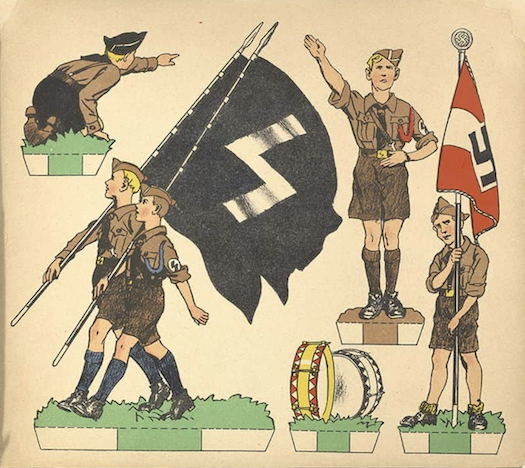
Examining the Factors Behind Widespread Support
New York, N.Y. – As the world reflects on the atrocities of World War II. and the Holocaust, a haunting question persists: How did Adolf Hitler, a man responsible for such immense suffering, garner the support of millions?

Understanding this phenomenon requires a multifaceted approach, examining the socio-economic conditions of post-World War I.
Germany, Hitler’s manipulation of propaganda, and the psychological factors that made his message so appealing to a disillusioned populace.
The Perfect Storm: Post-War Germany
The seeds of Hitler’s rise were sown in the aftermath of World War I. Germany, burdened by the Treaty of Versailles, faced economic collapse and widespread social unrest.
The treaty imposed heavy reparations, territorial losses, and military restrictions, crippling the nation’s economy and fueling resentment among its citizens.
Hyperinflation wiped out savings, leaving families destitute, and unemployment soared. This environment of desperation and disillusionment created fertile ground for extremist ideologies to take root.
The Power of Propaganda and Charisma
Hitler was a master of propaganda, skillfully exploiting the German people’s grievances and anxieties. He presented himself as a strong leader who could restore Germany to its former glory, promising to overturn the Treaty of Versailles, revive the economy, and unite the nation. His speeches were powerful and emotionally charged, filled with nationalist fervor and scapegoating rhetoric. He blamed Jews, communists, and other minority groups for Germany’s problems, playing on existing prejudices and fears.
Psychological Factors: Fear, Identity, and Belonging
Beyond economic hardship and political manipulation, psychological factors played a significant role in Hitler’s rise to power.

The German people, traumatized by the war and economic collapse, were searching for a sense of identity and belonging. Hitler offered them a vision of a strong, unified nation, where they could feel proud and secure. He appealed to their desire for order and stability, promising to restore traditional values and protect them from perceived threats.
The use of fear was also a potent tool, as Hitler stoked anxieties about internal enemies and external threats, creating a climate of paranoia and suspicion.
The Banality of Evil: Conformity and Complicity
It is crucial to remember that the Holocaust was not solely the work of a few fanatical Nazis. Many ordinary Germans, driven by a combination of factors, actively supported or passively condoned Hitler’s regime. Conformity, obedience to authority, and the desire to fit in played a significant role.
As the Nazi regime consolidated its power, dissent became increasingly dangerous, and many people chose to remain silent rather than risk persecution. The concept of the “banality of evil,” as articulated by Hannah Arendt, highlights the disturbing reality that ordinary people can participate in horrific acts when they are caught up in a system that normalizes and rewards such behavior.
Understanding how so many people could support Hitler requires examining the complex interplay of socio-economic factors, political manipulation, and psychological vulnerabilities. It serves as a stark reminder of the dangers of unchecked nationalism, scapegoating, and the erosion of democratic values. By studying this dark chapter in history, we can learn valuable lessons about the importance of critical thinking, tolerance, and the need to resist all forms of extremism.
Why Did Millions Support Hitler? Understanding the Rise of Nazism (April 22, 2025)
#Hitler #Nazism #WorldWarII #Holocaust #History
#Propaganda #Germany #Fascism #Totalitarianism
Tags: Hitler, Nazi Germany, World War II, Holocaust, propaganda,
fascism, totalitarianism, Germany, political science
